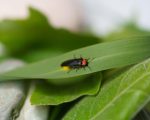Chronic Hepatitis B Virus and Hepatitis C Virus are associated with more than 70% of Hepatocellular Carcinoma (liver cancer) cases, including alcohol/tobacco consumption and Nutritional risk factors such as high intake of Saturated Fats (unhealthy fats) obtained from red meat consumption, type of cooking, and Aflatoxins (a family of toxins produced by some certain fungi on agricultural crops such as maize, rice, cottonseed, and peanuts, etc.).
When an HCC (liver cancer) patient is being evaluated for staging and treatment, special attention and care should be given to their nutrition and diet. As liver cancer patients develop HCC on top of long-lasting-cirrhosis and therefore could be malnourished (unbalanced nutrition.) Nutrition therapy should be given, considering the need for enough energy and protein to meet the patient’s requirement of nutrition for both cirrhosis and cancer. Supplementation with proteins such as branched-chains Amino Acids (leucine, isoleucine and valine) is also recommended to improve muscle mass, body protein, response to treatment and quality of life, nutritional status and survival. Finally, physical exercise must be encouraged and adapted to individual needs.
Research has pointed to the possibility that specific components or nutrients in the diet are linked with the increased risk of different types of cancer, including liver cancer. Food contamination due to Aflatoxins is one of the leading dietary causes of developing HCC. Aflatoxins are naturally occurring toxins produced by certain Fungi, such as Aspergillus flavus, and are also known as mycotoxins. Crops such as corn, wheat, peanuts, rice, sesame, sunflower seed, cottonseed and many spices develop infections due to Aspergillus during crop growth or improper transport or storage where they are exposed to warm and humid conditions. When fed contaminated food, animals can also pass Aflatoxins to eggs and dairy products.
Another factor that promotes HCC is the consumption of excessive saturated fats, especially those derived from red meat. A prospective cohort study indicates that red meat intake is associated with a higher incidence of liver disease mortality and HCC. According to some research, abdominal obesity also confers an increased risk of developing HCC.
In contrast to other types of cancer, diet has a protective effect on HCC, such as eating fish, which contains Omega-3 polyunsaturated fatty acids (special fats with many health benefits). These fatty acids could exert anticancer effects by their ability to produce apoptosis of cells, regulate cell cycle and manipulate the production of eicosanoids (essential molecules that help regulate various processes in our body to keep us healthy and functioning correctly).
Similarly, polyphenols (compounds having antioxidant properties) in fresh fruits and vegetables target angiogenesis (formation of vessels from preexisting vessels) and metastasis (spreading of cancer cells to other parts) in HCC through regulation of various intracellular signals and finally reduce the risk of HCC.
A diet with high fibre contents can reduce the risk of HCC by reducing subjective appetite (a measure of the motivation to eat) and energy intake, contributing to maintaining healthy body weight and positively affecting glucose levels after eating and lipid profile. They also team up with bile acids, which can help reduce cancer risk. Plus, they keep things moving smoothly in your gut, making it harder for bad stuff to stick around and cause trouble. Overall, they’re like bodyguards for your gut, helping to keep it healthy and protected.
In conclusion, maintaining a balanced diet rich in fruits, vegetables, whole grains, and lean proteins can positively affect liver health and reduce the risk of liver cancer. These foods provide essential nutrients and antioxidants that support liver function and help protect against harmful substances. On the other hand, excessive consumption of alcohol, processed foods high in sugar and unhealthy fats, and exposure to carcinogens like aflatoxins can increase the risk of liver cancer. Therefore, making healthy dietary choices and limiting the intake of harmful substances are crucial steps in preventing liver cancer and promoting overall well-being.














